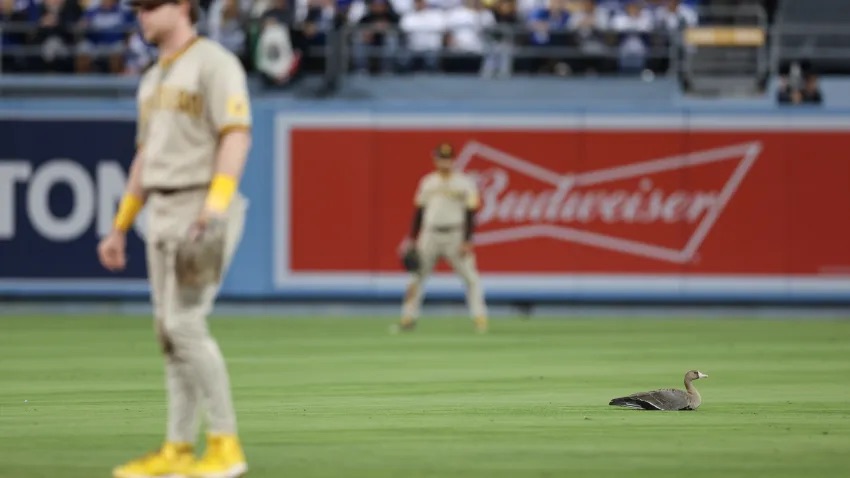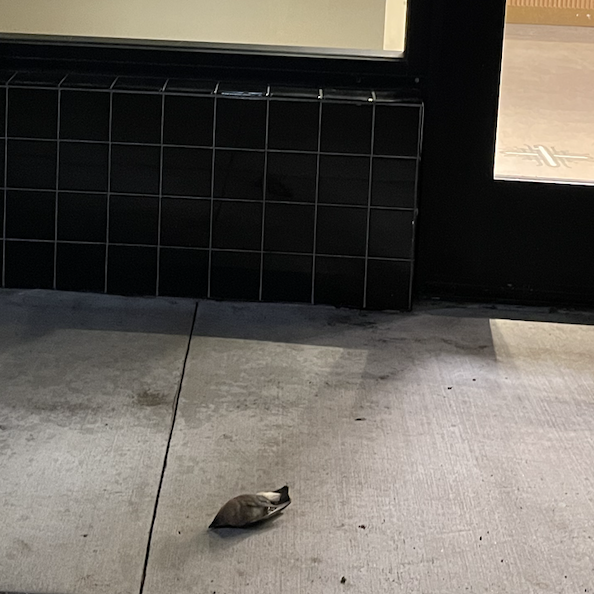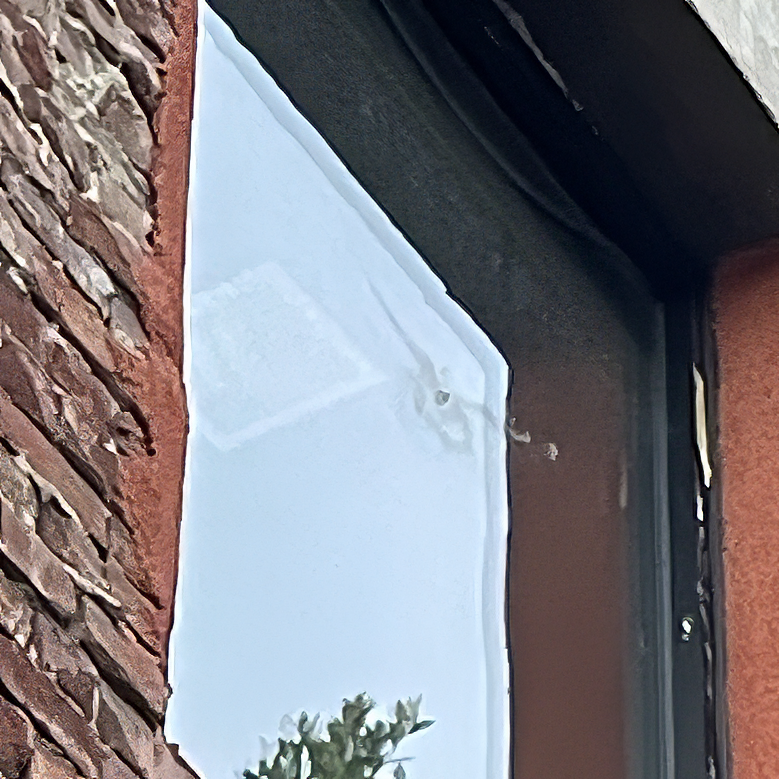Artificial Lights

(Photo by Rob Leiter/MLB Photos via Getty Images)
Have you heard about the goose that stole the show at the Dodgers game in 2022? Well, it’s just one example of how artificial lights can confuse birds during their nighttime migration. Billions of birds migrate every year, with most traveling at night. These lights can be detrimental to their survival, causing confusion and adding strain to their already exhausting journey.
We can support these birds by simply turning off unnecessary lights and encouraging others to do the same. Visit the National Audubon Society’s website to learn more.
Resources:
Learn more about the scientific studies on the effects of artificial lights on birds.
Visit Bird Cast to find out how many birds will be passing through your town during migration seasons.
Windows


From a bird's eye view (literally), open spaces and window reflections can be indistinguishable, leading them to collisions. Some birds might survive, some might not. Injured or dead birds often become a target for predators or get cleaned up before we notice them. This invisible issue is one of the top threats to birds’ survival.
We can help the birds by treating our windows, helping the birds recognize that these are not open spaces. Please visit the National Audubon Society’s website to learn more about how you can help.
Ready to make your windows bird-friendly? Check out these options and see what suits your taste!
Seen Injured or Dead Birds?
Report on dbird.org
Please report any injured or dead bird sightings on dbird.org. Your reports provide crucial context and direction for conservation and advocacy initiatives aimed at reducing human-caused threats to bird populations.
Share Your Experience with Us!
Email our Conservation Chair, Dave Weeshoff, at weeshoff@sbcglobal.net or call (818) 618-1652 to share your observations of bird-window collision. Any details such as window size, location, nearby foliage, or presence of bird feeders would help our advocacy efforts and assist in identifying potential causes to prevent future collisions. If you've already implemented preventive measures, we'd love to hear about your successful strategies!
Resources for Creating Bird-Friendly Communities:
Artificial Lights
(Photo by Rob Leiter/MLB Photos via Getty Images)
Have you heard about the goose that stole the show at the Dodgers game in 2022? Well, it’s just one example of how artificial lights can confuse birds during their nighttime migration. Billions of birds migrate every year, with most traveling at night. These lights can be detrimental to their survival, causing confusion and adding strain to their already exhausting journey.
We can support these birds by simply turning off unnecessary lights and encouraging others to do the same. Visit the National Audubon Society’s website to learn more.
Resources:
Learn more about the scientific studies on the effects of artificial lights on birds.
Visit Bird Cast to find out how many birds will be passing through your town during migration seasons.
Windows
From a bird's eye view (literally), open spaces and window reflections can be indistinguishable, leading them to collisions. Some birds might survive, some might not. Injured or dead birds often become a target for predators or get cleaned up before we notice them. This invisible issue is one of the top threats to birds’ survival.
We can help the birds by treating our windows, helping the birds recognize that these are not open spaces. Please visit the National Audubon Society’s website to learn more about how you can help.
Ready to make your windows bird-friendly? Check out these options and see what suits your taste!
Seen Injured or Dead Birds?
Report on dbird.org
Please report any injured or dead bird sightings on dbird.org. Your reports provide crucial context and direction for conservation and advocacy initiatives aimed at reducing human-caused threats to bird populations.
Share Your Experience with Us!
Email our Conservation Chair, Dave Weeshoff, at weeshoff@sbcglobal.net or call (818) 618-1652 to share your observations of bird-window collision. Any details such as window size, location, nearby foliage, or presence of bird feeders would help our advocacy efforts and assist in identifying potential causes to prevent future collisions. If you've already implemented preventive measures, we'd love to hear about your successful strategies!
Resources for Creating Bird-Friendly Communities: